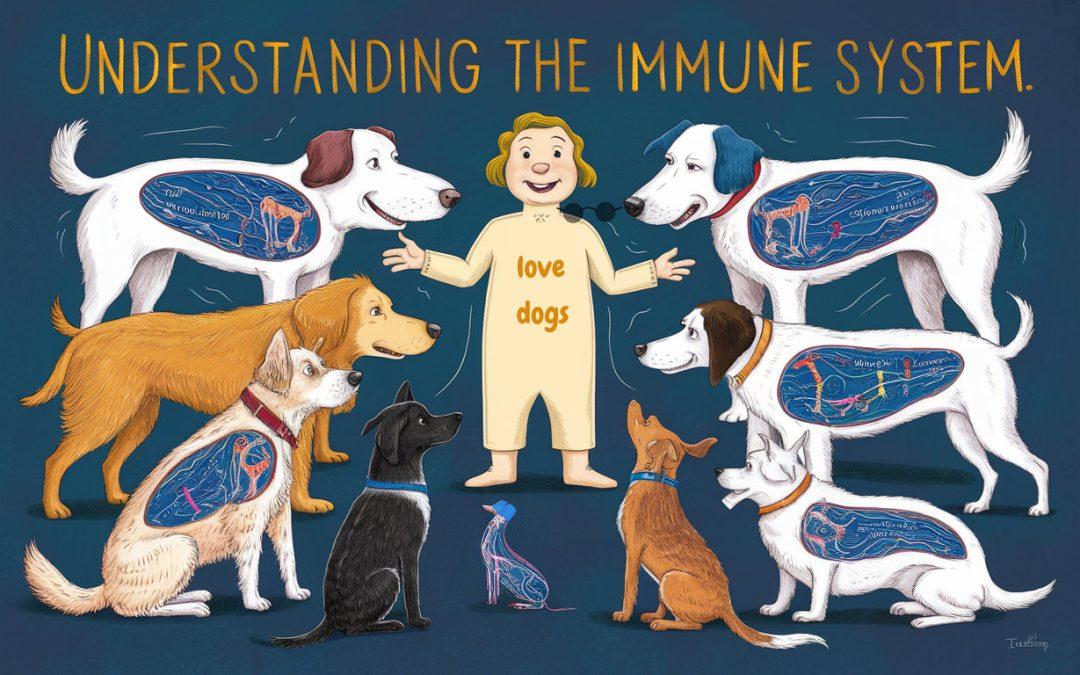As pet owners, we always strive to provide our furry companions with the best care possible, ensuring they lead happy and healthy lives. One of the most impactful ways we can support their well-being is through their diet. Among the essential nutrients that can significantly enhance your dog’s health are Omega-3 fatty acids. These remarkable nutrients, often found in fish oil and flaxseed, are not just beneficial for humans but play a crucial role in maintaining and improving the health of our canine friends. In this article, we will explore the numerous benefits of incorporating Omega-3 fatty acids into your dog’s diet, from promoting a shiny coat and healthy skin to supporting joint health and cognitive function. Join us as we delve into how these powerful nutrients can make a world of difference in your dog’s overall health and vitality.
Understanding Omega 3 Fatty Acids and Their Role in Canine Health
Omega 3 fatty acids are essential nutrients that play a crucial role in maintaining the overall health and well-being of dogs. These polyunsaturated fats, primarily found in fish oil, flaxseed, and certain types of algae, are renowned for their anti-inflammatory properties and numerous health benefits. Incorporating Omega 3s into your dog’s diet can help:
- Improve Joint Health: Omega 3s are known for their ability to reduce inflammation, which can be particularly beneficial for dogs suffering from arthritis or other joint-related issues.
- Enhance Skin and Coat Condition: Regular intake can lead to a shinier coat and healthier skin, reducing issues like dryness and itching.
- Support Cognitive Function: These fatty acids contribute to brain health, which is especially important for aging dogs to maintain sharpness and responsiveness.
- Boost Heart Health: Omega 3s can help lower the risk of heart disease by supporting healthy blood pressure levels and reducing triglycerides.
Integrating Omega 3-rich foods or supplements into your canine companion’s diet is a simple yet effective way to promote a longer, healthier life. Consult your veterinarian to determine the appropriate dosage and source to meet your dog’s specific needs.

Enhancing Your Dogs Coat and Skin with Omega 3 Supplements
Imagine a world where your dog’s coat gleams with health and their skin is free from irritation. This dream can become reality with the introduction of Omega 3 supplements into your furry friend’s diet. These essential fatty acids work wonders in enhancing both the appearance and health of your dog’s skin and coat. Omega 3s are known to improve skin hydration, reduce inflammation, and even help with conditions like dermatitis and dandruff.
- Shinier Coat: Regular intake of Omega 3 can lead to a noticeable improvement in the sheen and texture of your dog’s coat.
- Reduced Shedding: By strengthening hair follicles, these fatty acids can help minimize excessive shedding.
- Alleviated Skin Irritations: Omega 3s have anti-inflammatory properties that can soothe itchy and irritated skin.
Integrating these supplements into your dog’s diet is simple. Whether through fish oil capsules or enriched dog food, the benefits are immense and can lead to a happier, healthier pet.

Boosting Your Dogs Immune System with Omega 3-Enriched Diet
Ensuring your furry friend leads a healthy and vibrant life often starts with their diet. An Omega 3-enriched diet can be a game changer when it comes to enhancing your dog’s immune system. These essential fatty acids are known to play a crucial role in reducing inflammation, which is not only beneficial for joint health but also supports the immune response. By incorporating Omega 3s into your dog’s meals, you’re helping to fortify their natural defenses against illnesses and infections.
- Reduced Inflammation: Omega 3s are known to combat inflammation, which can improve your dog’s overall well-being and comfort.
- Improved Skin and Coat Health: A diet rich in Omega 3 can lead to a shinier coat and healthier skin, reducing itchiness and dryness.
- Enhanced Cognitive Function: These fatty acids support brain health, potentially leading to improved learning and behavior in dogs.
- Heart Health Support: Omega 3s contribute to maintaining a healthy heart, reducing the risk of heart-related issues.
Incorporating foods rich in Omega 3, such as fish oil or flaxseed, into your dog’s diet can be a simple yet effective way to boost their immune system. Always consult with your veterinarian to tailor the best dietary plan for your pet’s specific needs, ensuring they reap the full benefits of these powerful nutrients.

Choosing the Right Omega 3 Sources for Your Furry Friend
When it comes to selecting the best sources of Omega 3 for your dog, it’s essential to consider both quality and sustainability. The most common sources include fish oil, flaxseed oil, and algae oil. Each option offers unique benefits and potential drawbacks. Here’s a closer look to help you make an informed decision:
- Fish Oil: A popular choice, fish oil is rich in EPA and DHA, two types of Omega 3 fatty acids that are particularly beneficial for dogs. Look for products made from wild-caught fish to ensure higher quality and avoid contaminants. Opt for brands that provide third-party testing results to guarantee purity.
- Flaxseed Oil: Ideal for vegetarian pet owners, flaxseed oil contains ALA, another type of Omega 3. However, dogs need to convert ALA into EPA and DHA, which might not be as efficient. Still, it can be a valuable supplement, especially for dogs with fish allergies.
- Algae Oil: A sustainable and vegetarian-friendly source, algae oil directly provides EPA and DHA without the need for conversion. It’s an excellent option for those concerned about overfishing and environmental impact.
Always consult your veterinarian before adding any new supplements to your dog’s diet to ensure it aligns with their specific health needs.

